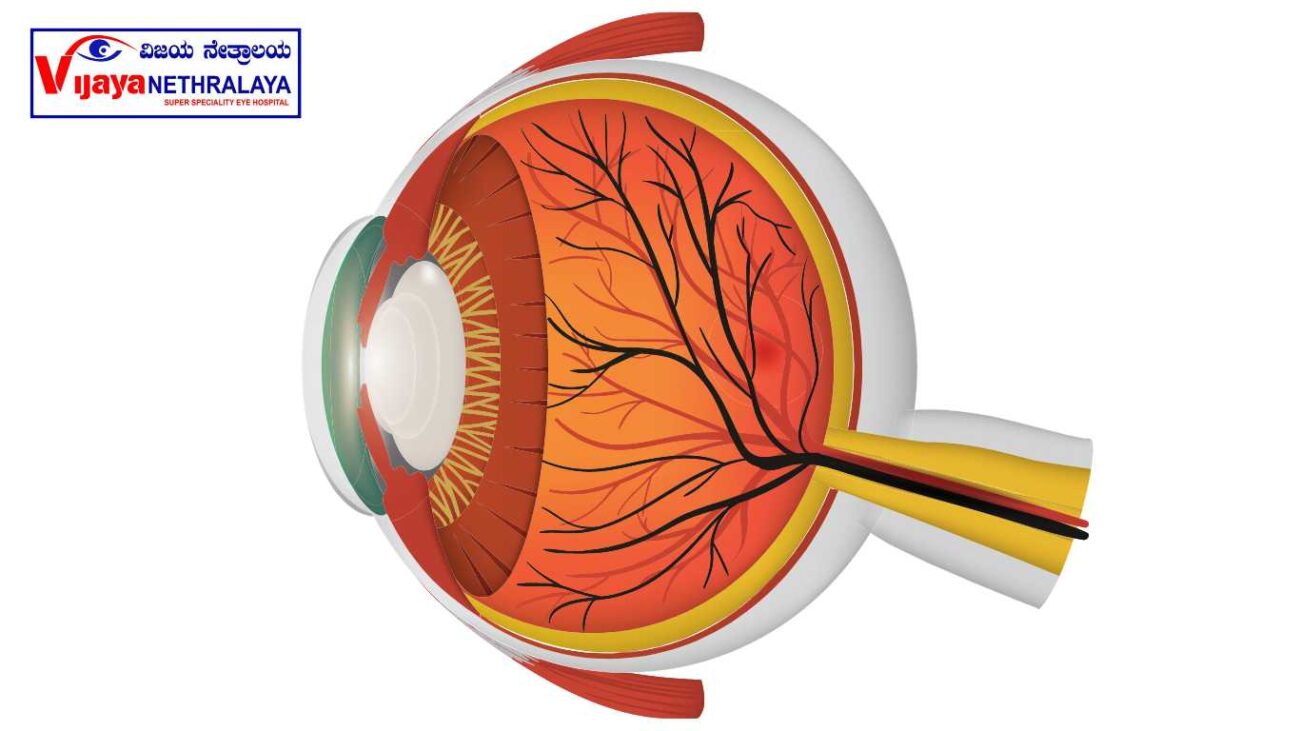Introduction:
Diabetic retinopathy is a common complication of diabetes that affects the eyes and can lead to vision loss if left untreated. It is essential to recognize the early symptoms of this condition to seek timely medical intervention and preserve eye health. Diabetic retinopathy is linked to diabetes.
Understanding Diabetic Retinopathy:
Diabetic retinopathy is caused by damage to the blood vessels in the retina, the light-sensitive tissue at the back of the eye. The condition typically develops over time as a result of uncontrolled high blood sugar levels in individuals with diabetes. It is crucial to note that both type 1 and type 2 diabetes can lead to diabetic retinopathy.

Symptoms of Diabetic Retinopathy:
- Blurred Vision: One of the initial signs of diabetic retinopathy is experiencing blurred or fluctuating vision. This occurs as the damaged blood vessels in the retina affect its ability to transmit clear images to the brain.
- Floaters: Floaters are tiny specks or spots that appear in the field of vision. In diabetic retinopathy, floaters may increase in number and size due to the presence of blood or other fluids leaking into the eye.
- Impaired Color Vision: Another symptom is a gradual loss of the ability to perceive colors correctly. Colors may appear washed out or less vibrant, impacting the overall visual experience.
- Dark or Empty Areas in Vision: As the condition progresses, individuals may notice dark or empty areas in their field of vision. These areas may hinder the ability to see clearly and can worsen over time.
- Fluctuating Vision: Vision changes may not be constant and can fluctuate throughout the day. This fluctuation is often a sign of the varying levels of blood sugar affecting the eye’s blood vessels.
Early Detection is Key:
Early detection of diabetic retinopathy is crucial for preventing further vision deterioration. Regular eye examinations are recommended for individuals with diabetes, as they allow healthcare professionals to identify any signs of retinal damage even before noticeable symptoms occur.

Managing Diabetic Retinopathy:
If diagnosed with diabetic retinopathy, there are various treatment options available, including laser therapy, medication, and, in advanced cases, surgery. However, it is essential to manage the underlying cause, diabetes itself, to prevent further progression of the condition. This involves maintaining good blood sugar control through a healthy diet, regular exercise, and proper medication as prescribed by a healthcare provider.
Conclusion:
Diabetic retinopathy is a serious eye condition that can lead to vision loss if not detected and treated promptly. By recognizing the early symptoms and seeking regular eye examinations, individuals with diabetes can take proactive steps to protect their vision. Remember, early detection and effective management of diabetes are key to preserving eye health and overall well-being. If you experience any of the symptoms mentioned, consult your healthcare provider to ensure timely intervention and appropriate treatment.

